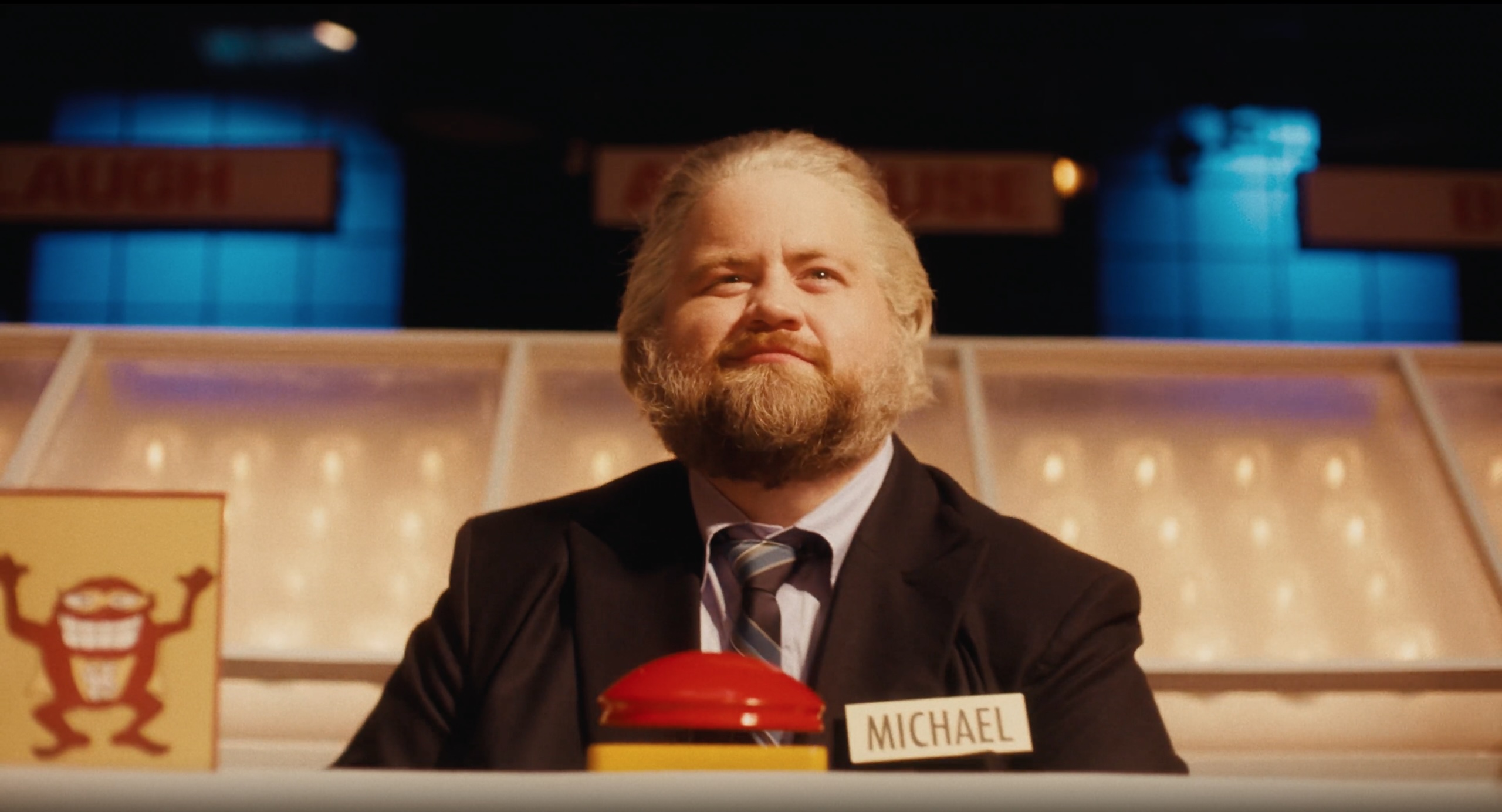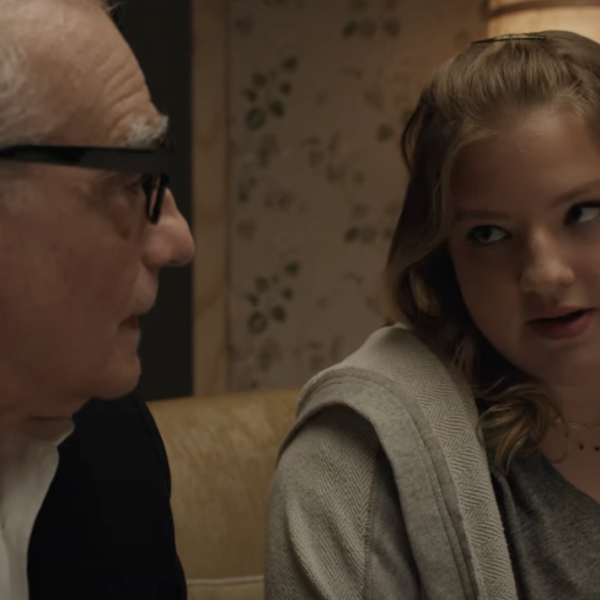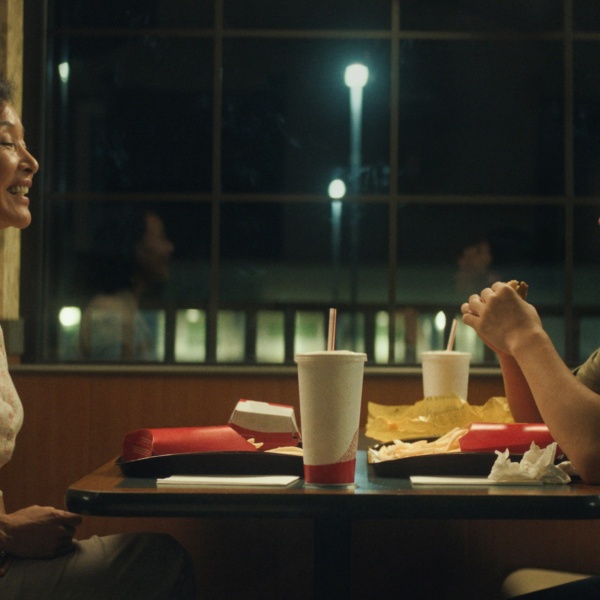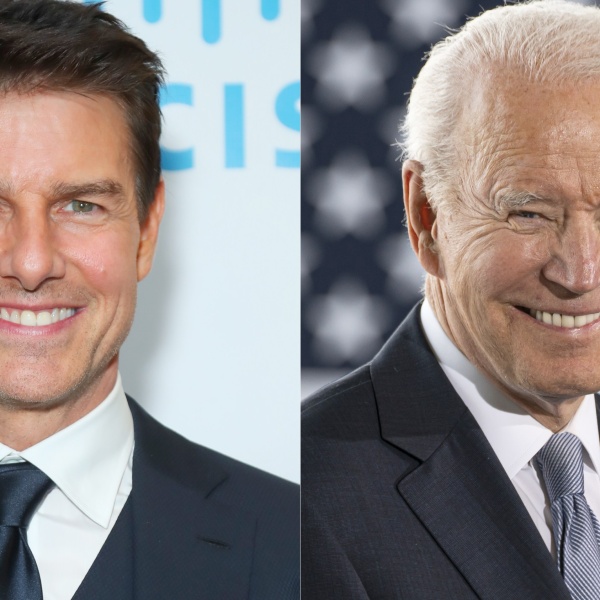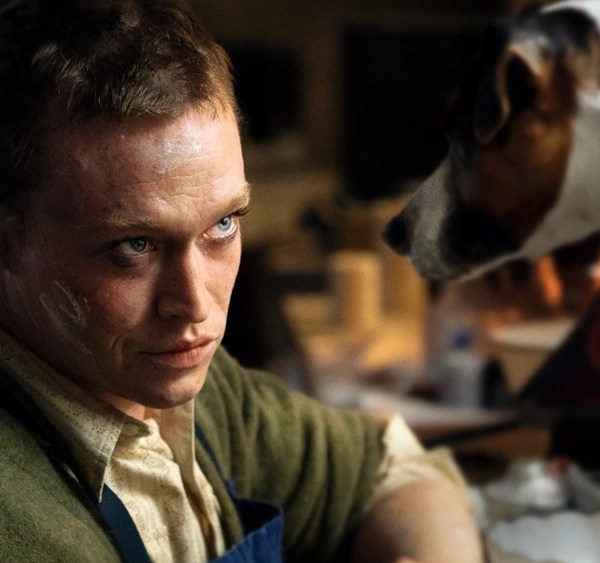With his sophomore outing, “The Luckiest Man in America,” Colombian filmmaker Samir Oliveros asks a simple question: How far would you go to make a better life for yourself and those around you? The way he chooses to answer it, however, turns out to be far more complex, made all the more intriguing by virtue of the fact that this contemporary tall tale is largely based in truth. Set in 1984 and taking place almost entirely within the confines of CBS‘s Television City studios, this biographical thriller follows the story of Michael Larson, an unemployed ice cream truck driver who manages to earn a spot on the game show “Press Your Luck” and beats the odds to receive the biggest payout ever. How he did so is what makes this stranger-than-fiction narrative so compelling. This and, of course, the very talented cast bringing this legendary episode of television back to life.
Portraying Larson is Emmy and Golden Globe-winning actor Paul Walter Hauser, whose performance is a standout in a growing career of what seems to be exclusively standout performances. From “I, Tonya” to “Black Bird,” Hauser has brought nuance and depth to characters many would find hard to approach in real life and now with Larson in “Luckiest Man” creates a folk hero riddled with ethical compromise, yet emboldened by the circumstance he’s willed himself into. In addition to leading the ensemble cast, Hauser also serves as an executive producer on the film. In an exclusive interview with IndieWire, he explained that he took on this role because of how much he believed in Oliveros and the script, as well as the untapped potential of the setting it revolved around.
“Game shows aren’t an overexposed backdrop or topic in film,” Hauser said. “There’s so many things that have been done to death. The game show hasn’t really been done to death. And then you kind of compliment that with the fact that it’s such a human story and it’s such a great character piece. The heart, the humor, the setting — and then when I spoke with Samir Oliveros and his brilliant, kindhearted team, what they wanted most out of it was for people to really care about this guy. And lean in and invest themselves in the story even if it was a kind of crazy, harebrained scheme.”

He added later of handling his producorial responsibilities, “This seemed like an opportunity where I could step in and be a little more bold. And in giving my opinion and my support, sometimes it’s taking a haircut on your paycheck and sometimes it’s texting the director at 3 a.m. saying, ‘Hey, I know that person passed. What about this person?’ So I was super, super thrilled to be a part of that process and help as much as I could.”
For Emmy-nominee Walton Goggins, who plays “Press Your Luck” host Peter Tomarken, though he says the prospect of portraying a real person and the real stakes involved with the scenario “scared the shit of me,” he was so impressed by the script, he knew it was worth the risk. In trying to bring forth the drama from the page, Goggins also pushed to shoot scenes in real-time to better capture the actual experience of being on a game show.
“We got 15 minutes into a 23-minute game show in real time. From the introduction all the way to all the questions, interviewing all the contestants, the first two or three rounds, until the stage had to turn,” Goggins told IndieWire. “We did it, man. And it felt like a piece of theater. And in some ways for the people that were there that day, looking back on it, it really was a piece of theater. They just didn’t know that it was being directed by Michael Larson himself.”

In playing “Press Your Luck” creator and executive producer Bill Carruthers, who cast Larson and is forced to face the fallout, Academy Award-nominee David Strathairn also found the experience to be quite theatrical, as not only were scenes shot in long takes, but also in sequence.
“It did feel like doing a play,” Strathairn said, echoing Goggins’ comments. “And in the room, everybody was there contributing to the scene and the way that Samir was shooting, it felt like he was covering more than just one or two people at a time so that you sort of had to be on. You were part of the play and the proscenium was the camera and the audience was out there, sitting, watching Paul.”
According to Hauser, what the audience was watching was not just a man getting the better of an entire television network, but also an actor trying to play his part. Prior to being cast on “Press Your Luck,” Larson had spent months studying episodes and discovered a flaw that allowed him to take advantage of the game’s limited number of patterns, so while he tried to appear as if his luck was random, there was actually a great deal of strategy behind it. A fan of the show himself, Hauser says the meta nature of the narrative allowed him a way into the character and the experience, especially after seeing the recreation of the “Press Your Luck” set on stages in Bogotá, Colombia where the film was shot.
“I was kind of giddy when I saw the set because I grew up watching the show. So I felt very transported myself into the show, which was something I could use to play that character of Michael,” said Hauser. “He’s been watching the show, now he’s part of it. So there’s something giddy and kind of almost naughty, like Martin Short going to Dinosaur World in the movie ‘Clifford.’ There’s something reckless and childlike and giddy, but then there’s also something so intimately strategic going on the entire film. So you’re trying to play both sides and as an actor, it was the same for me, where I’m giddy to be there.”
Goggins also found himself relating to Larson in certain ways, in that, coming from a small town where people “go to work at the factory right down the road,” the idea of trying to be an actor, let alone succeeding at it, felt like some kind of scheme. At the same time, no matter how “worthy” it was to work at the factory, Goggins just “wasn’t that guy” and he preferred to take the risk.

“There’s no fucking guarantee with what we do for a living at all. None. There is no safety net. There’s no nothing,” Goggins said. “And you just believe in yourself and you march to a different drum and this guy Michael Larson — charlatan or not — he just saw himself differently than the way that the people around him were being defined and he, in 1984, bought 100 TVs and 100 VCRs — I mean, how he afforded that, I don’t know — and dedicated a year of his life to figuring out a way to make an impact in this world.”
This concept of risk and reward is prevalent throughout “Luckiest Man” and something Strathairn attached to right away. In his view, this is what makes the film so relatable: The notion that anyone can change their luck in an instant if they’re dedicated enough. The fact that this message is hidden within a tense, captivating plot made it all the more attractive to the constantly booked actor.
“What sort of emanates from [Larson] gambling and wanting to hit it big and trying to scam a corporation — there’s something common to the human condition in many ways,” Strathairn said to IndieWire. “Everybody is hoping for that. I mean, look at how many casinos there are. Look at what gambling is. Look at Las Vegas, look at the cruise ships, look at all these things. It’s part of our DNA in a way. And I love that this film touches on that very subtly without any pandering to it.”

Despite Larson’s inherent relatability, Hauser had no interest in making him faultless. In his view, him being an “amazing contestant” doesn’t make up for the fact that he’s a “shit father.” To him Larson using his daughter to rationalize the depths to which he stoops is just cover for his own twisted worldview.
“I think there’s a lot of covert narcissism in many white male figures, not even in places of power, but just in general and I think there’s an inherent thing with that that probably needs to be checked at the door. I think he kind of went unchecked and then you end up saying, ‘Oh, all my schemes are actually for a purpose,’” Hauser said. “And so you allow certain behaviors because you’re putting all the onus on the purpose that you’re trying to provide or help your family or whatever. I think a very universal trait of covert narcissists is they’re always giving reasoning for their bad behavior.”
While it was easy for Hauser to make these judgements in observation, when he was actually within the character, he tried to empathize with Larson as best he could. In discussing one sequence that sees Larson return to the “Press Your Luck” stage to cheers of his name after having just run away, Hauser said, “I can relate to that too as someone who is trying to divorce themselves from the love of business and acting and attention stealing. I feel like I’m running sometimes.”
Like Larson did that fateful day in ’84, Hauser, Goggins, and Strathairn all seem to have had the run of their lives on “The Luckiest Man in America,” as did the rest of the cast, which includes Brian Geraghty, Patti Harrison, Shamier Anderson, Maisie Williams, Hayley Bennett, and Johnny Knoxville. Now it’s time for TIFF’s turn at the buzzer and they could be in for a big pay day.
“The Luckiest Man in America” will have its world premiere at the 2024 Toronto International Film Festival. It is currently seeking U.S. distribution.
